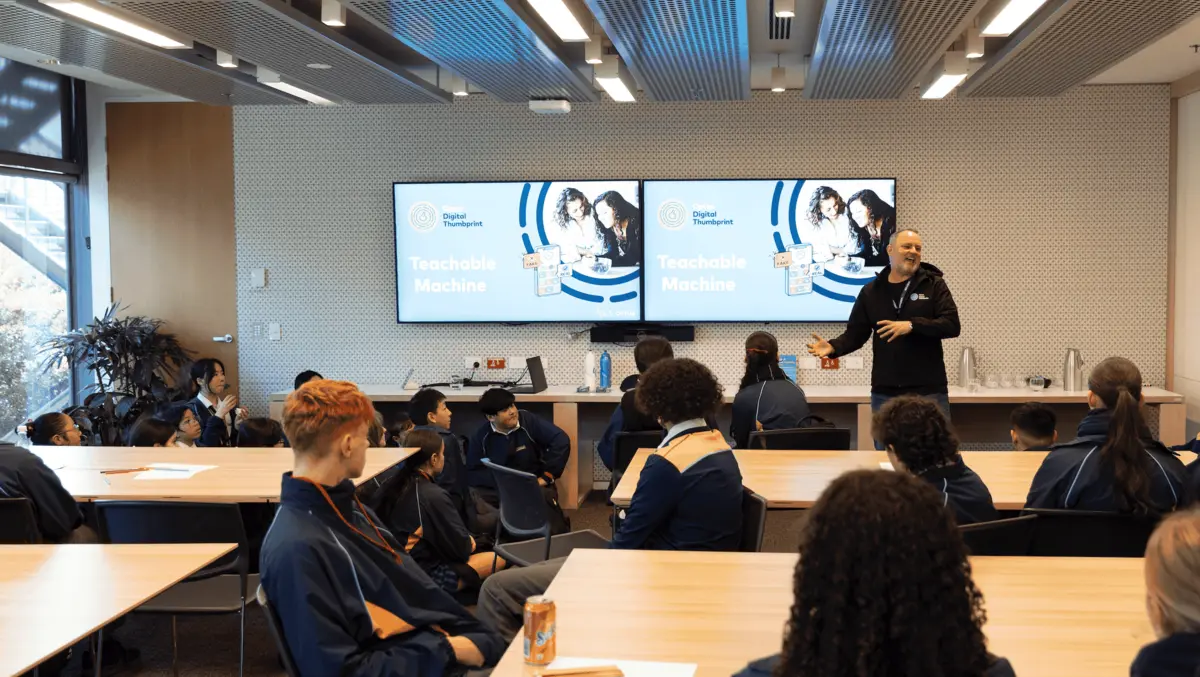
Optus workshop helps over 1,000 students tackle online AI threats
More than 1,000 students across Australia have taken part in a recent Digital Thumbprint workshop held by Optus, focusing on the emerging online threats faced by young people, including extortion, scams, and the proliferation of deepfakes.
The event drew participation from over 200 Year 9 students in Sydney, who attended in person at the Optus Campus, and a further 1,100 primary students joined the session virtually from various parts of the country. The workshop is part of the Optus Digital Thumbprint program, designed to provide young Australians with the knowledge and skills to safely navigate increasingly complex digital environments.
AI challenges
A key focus of the new workshop was the rise of generative artificial intelligence (GenAI) and the associated difficulties in recognising AI-generated content. According to surveys conducted by the Digital Thumbprint program, 31% of students who had attended workshops reported that they could not determine if content was created using GenAI.
Other survey findings from more than 3,500 participants since 2023 highlight the extent of the challenges students face online: 41% indicated they struggle to recognise fake news or misinformation, while 19% have encountered deepfakes and chatbot interactions. Additionally, 27% of those surveyed named AI scams and extortion as the biggest challenge to protecting their personal information online.
Youth perspectives
During the workshop, a youth-led panel was convened featuring Aditi Kamath from the eSafety Youth Council, Rozlinda, a student from Westfield Sports High School, and Honre Young, AI Product Manager at Optus. The panel provided valuable insights into the experiences of young people with digital threats.
Participants also engaged in practical activities, including designing their own emojis and using an AI image classifier to recognise and recreate these images. These activities aim to deepen students' understanding of how new technologies work and their implications for online safety and privacy.
Educator and parent involvement
Felicity Ross, Chief Corporate Affairs and Marketing Officer at Optus, discussed the importance of adults supporting young people in developing stronger digital literacy skills. She called on parents, carers, and teachers to make use of the Digital Thumbprint toolkit and to further their own understanding of the challenges facing young internet users:
"Young people today face a more challenging digital environment than ever before. As parents, carers and educators, it's essential we stay informed and support young people to use their digital literacy skills to think critically about what they see online. From recognising scam tactics and spotting deepfakes to understanding how to support digital wellbeing, we all have a role to play in helping our youth to navigate this complex digital world safely."
Program reach
The Optus Digital Thumbprint Program has been running since 2013, delivering educational workshops to 1,140 schools and reaching 670,000 students across Australia. The program, recognised by the eSafety Commissioner as a Trusted e-Safety Provider, is delivered both in-person by facilitators and virtually through interactive digital workshops. Its curriculum explores key concepts in online safety, responsible technology use, and digital wellbeing, and aims to equip students with practical tools to address digital challenges. All sessions are provided free of charge to schools.
The continued expansion of the Digital Thumbprint program and the introduction of specialist workshops on GenAI reflect an ongoing response to the evolving risks faced by young people online, according to the organisation.


